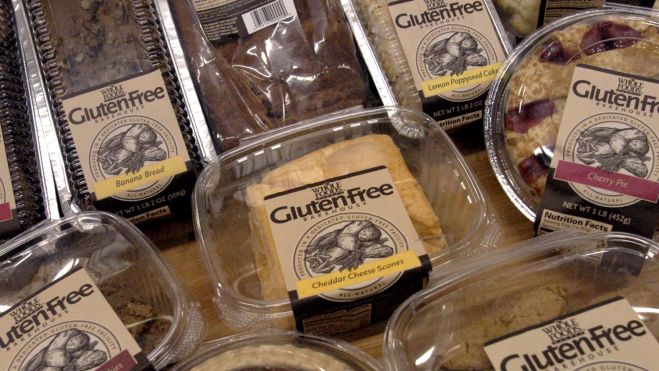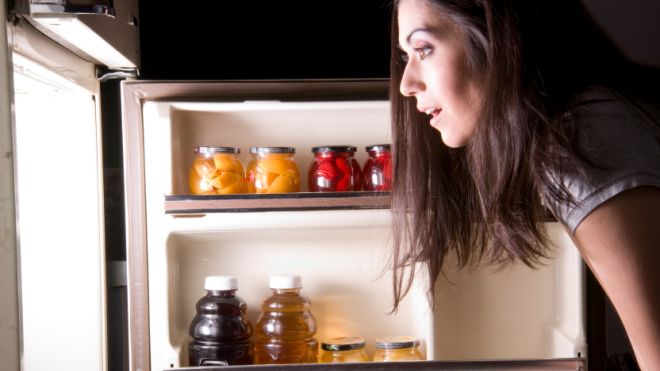Your 5 worst gluten-free mistakes
After experiencing some wacky symptoms, I was recently tested for celiac disease, and while the report came back negative, I've noticed that I do feel better when I avoid gluten. Many of my clients are in the same boat, but others seek me out after going gluten free and feeling worse, or even gaining weight, which seems to be increasingly common.  The truth is, navigating the gluten-free landscape can be pretty darn tricky. Here are five common missteps I see, and how to resolve them. Not 'getting' gluten One client recently said to me, “I'm not really sure what gluten is, but I know it's bad, right?” I think a lot of people are a little in the dark about the issue at large, and it is complicated, but in a nutshell, here's what you need to know: gluten is a type of protein naturally found in wheat (including spelt, kamut, farro, and bulgur) and other grains, like barley and rye. In people who have celiac disease, consuming even small amounts of gluten triggers unwelcome symptoms, including belly pain and bloating. This happens because gluten causes the immune system to damage or destroy villi, the tiny, fingerlike structures that line the small intestine like a microscopic plush carpet. Healthy villi absorb nutrients through the intestinal wall into the bloodstream, so when they become damaged, chronic malnutrition occurs, which is typically accompanied by weight loss and exhaustion. Other symptoms may include bone or joint pain, depression, and skin problems. In people with this diagnosis, the only way to reverse the damage, and the accompanying symptoms, is to completely avoid gluten. People like me, who test negative for celiac disease, may be experiencing a condition called gluten intolerance, or gluten sensitivity, which means that while not celiac, consuming gluten causes bothersome side effects, which can include flu-like feelings, bloating, and other gastrointestinal problems, mental fogginess, and fatigue. Unfortunately, there is no real test for gluten sensitivity at this time, and the symptoms may be related to other issues, including stress (who doesn't have that?!), which makes it a not-so-black-and-white issue. Health.com: Will a Gluten-Free Diet Improve Your Health? Confusing 'gluten free' with 'wheat free' or refined grains As I noted above, gluten isn't only found in wheat. I've heard numerous people say they eat gluten free, but all they've really done is replace foods like white bread with hearty whole grain versions, which may include spelt (in the wheat family), and rye (which, while not wheat, also contains gluten). If you don't have celiac disease or gluten intolerance, these swaps may make you feel great, and lead to weight loss, because trading refined grains for whole grains ups your intake of <a href=”http://www.health.com/health/gallery/0,,20553010,00.html”>fiber</a>, boosts satiety, so you feel fuller longer, and better regulates blood sugar and insulin levels. These are all good things, but, in this case, totally unrelated to gluten. Health.com: 15 Gluten-Free Recipes Thinking gluten free equals weight loss You may have seen a friend, co-worker, or celebrity suddenly slim down after proclaiming to give up gluten. And while going gluten free may absolutely lead to dropping a dress size (or more), the weight loss is generally caused by giving up foods that contain gluten, which are loaded with dense amounts of refined carbs, like bagels, pasta, crackers, pretzels, and baked goods. Axing these foods altogether, or replaced them with more veggies and healthy gluten-free whole grains, like quinoa and wild rice, automatically cuts excess carbs (which may have been feeding fat cells), ups fiber and nutrients, and results in soaring energy. However, going gluten free can also lead to weight gain. Health.com: Best Superfoods for Weight Loss Loading up on gluten-free junk food Because gluten free has exploded in popularity, there are dozens of gluten-free options in markets these days, including carb-laden (but gluten free) versions of… bagels, pasta, crackers, pretzels, and baked goods! One popular brand of gluten free cookies pack 60 calories each, more than a “regular” sandwich cookie. And some gluten-free foods are made with refined gluten-free grains, which have been stripped of their fiber and nutrients, like white rice. The bottom line is, simply going gluten free doesn't guarantee the loss of pounds and inches—quality and quantity still matter most. Health.com: Are You Making These Dieting Mistakes? Ignoring the rest of your diet In addition to quality and quantity, balance is critical for feeling well and achieving weight loss. I've seen people trade white pasta for healthy whole grains like quinoa or wild rice, but still eat portions that are far too large, and therefore not see weight loss results. Others believe it's OK to eat unlimited amounts of healthy gluten-free foods, like fruit and nuts. But sadly, any time you eat more than your body can use or burn, even from healthy foods, you create surpluses, which get shuttled straight to your body's storage units—fat cells. If you have celiac disease (get tested if you suspect you do, but you're not sure), you absolutely must avoid gluten, and it's important to note that it lurks in many products, from salad dressings and seasoning mixes, to vitamins, and even lip balm, so eliminating it completely is a big commitment. And if you think you may be gluten intolerant, try to avoid gluten, and monitor your how you feel. But in either case, the single most important thing you can do is to strive for a healthy, balanced, whole foods diet, the true keys to both optimal health and weight loss. Cynthia Sass is a registered dietitian with master's degrees in both nutrition science and public health. Frequently seen on national TV, she's Health's contributing nutrition editor, and privately counsels clients in New York, Los Angeles, and long distance. Her latest New York Times best seller is S.A.S.S! Yourself Slim: Conquer Cravings, Drop Pounds and Lose Inches. This article originally appeared on Health.com.source : http://www.foxnews.com/health/2013/05/14/your-5-worst-gluten-free-mistakes/

